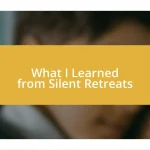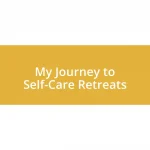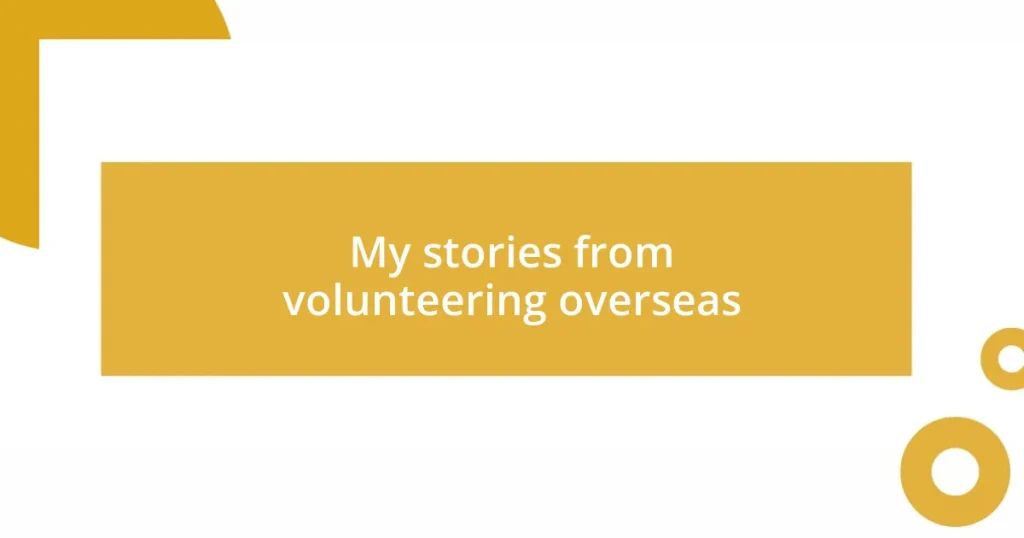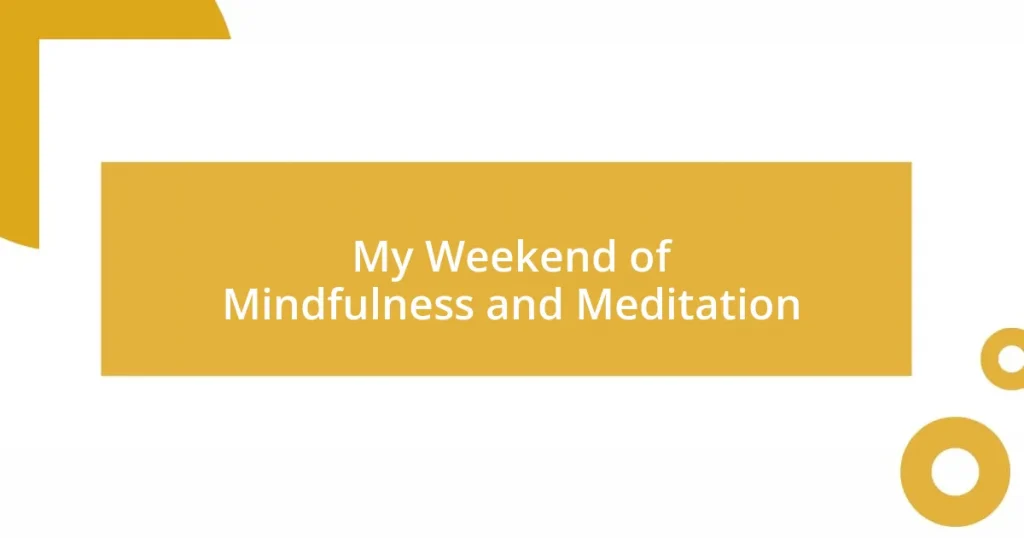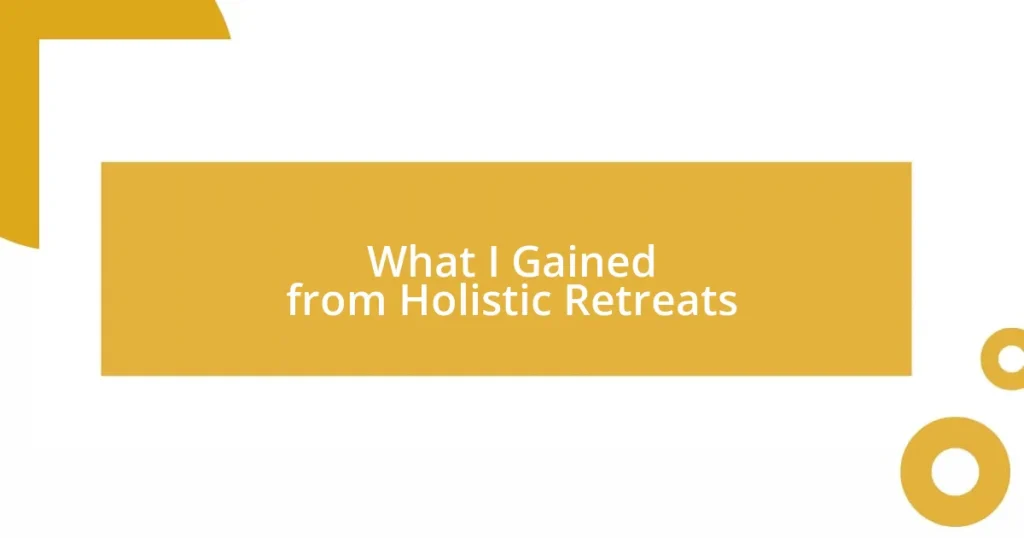Key takeaways:
- Volunteering overseas significantly impacts both the communities served and the volunteers, fostering personal growth and deep connections.
- Choosing the right volunteer program involves aligning personal interests with the organization’s mission and considering practical aspects like duration and accommodation.
- Engagement with local cultures requires adaptation, understanding social norms, and building trust through genuine interactions.
- Reflection on the volunteer experience is crucial for acknowledging personal growth and the lessons learned from local communities.
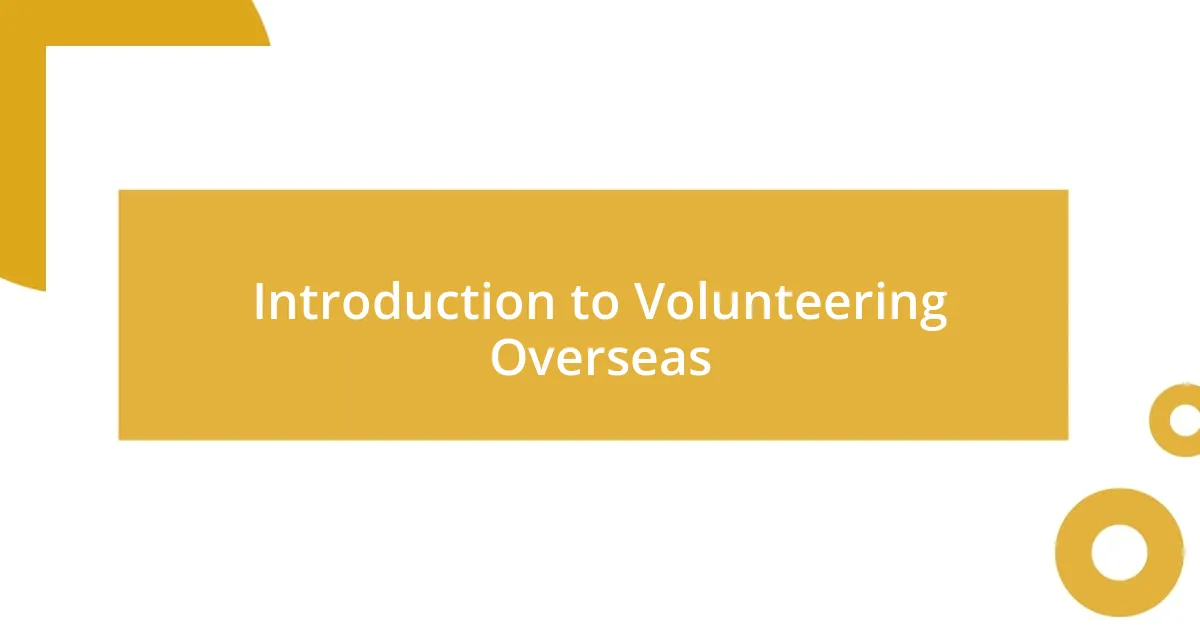
Introduction to Volunteering Overseas
When I first considered volunteering overseas, it felt like such an exhilarating leap into the unknown. The thrill of stepping into a world where I could make a difference while immersing myself in a new culture was incredibly appealing. Have you ever thought about how transformative such experiences can be, not just for the communities you serve but for yourself as well?
Each journey I embarked on was filled with moments that taught me more about humanity and resilience than any classroom could provide. I vividly recall a time in a small village where access to clean water was a luxury. My heart swelled when I saw the joy on the children’s faces as we successfully installed a water filtration system. It made me realize just how impactful even small contributions can be.
The connections I formed with local people left an indelible mark on my soul. They shared their stories, laughter, and culture with me, often challenging my assumptions and broadening my perspective. Isn’t it fascinating to think about how volunteering overseas doesn’t just change the world around you, but actually reshapes who you are?
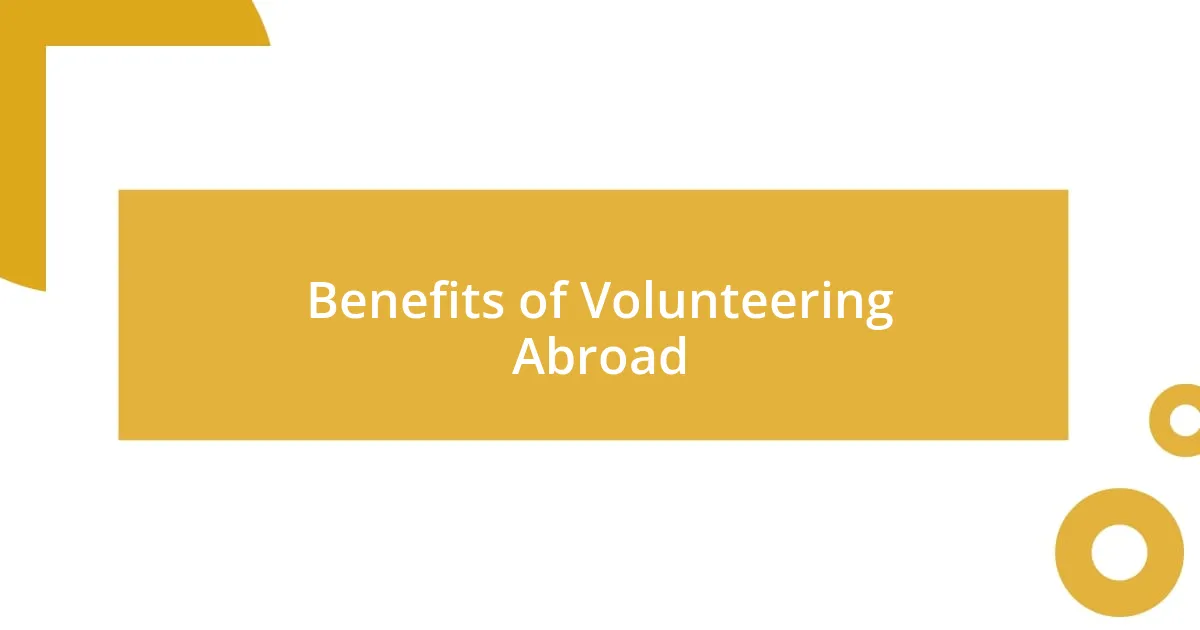
Benefits of Volunteering Abroad
Volunteering abroad opens horizons you never knew existed. I remember working with a group of artisans in a little Honduran town, where I gained not just skills in craftsmanship but also a profound appreciation for their way of life. It’s all about immersing yourself fully and realizing how rich and diverse our world is.
- Cultural Exchange: You gain firsthand insight into new cultures, customs, and traditions.
- Personal Growth: Every experience pushes you out of your comfort zone, enhancing your adaptability and resilience.
- Skill Development: Volunteering often provides opportunities to learn new practical skills, whether that’s in teaching, healthcare, or construction.
- Networking: You build connections with like-minded individuals and locals, creating a network that can last a lifetime.
- Increased Empathy: Experiencing the challenges faced by others cultivates a deeper understanding and compassion, shaping your worldview.
One of my most cherished moments was when I taught English to local high school students. Their eagerness to learn and my struggle to convey complex concepts reminded me of my own schooling. It struck me how volunteering can ignite not only a passion for education but also create bridges between different generations and experiences, fostering a deep sense of camaraderie.
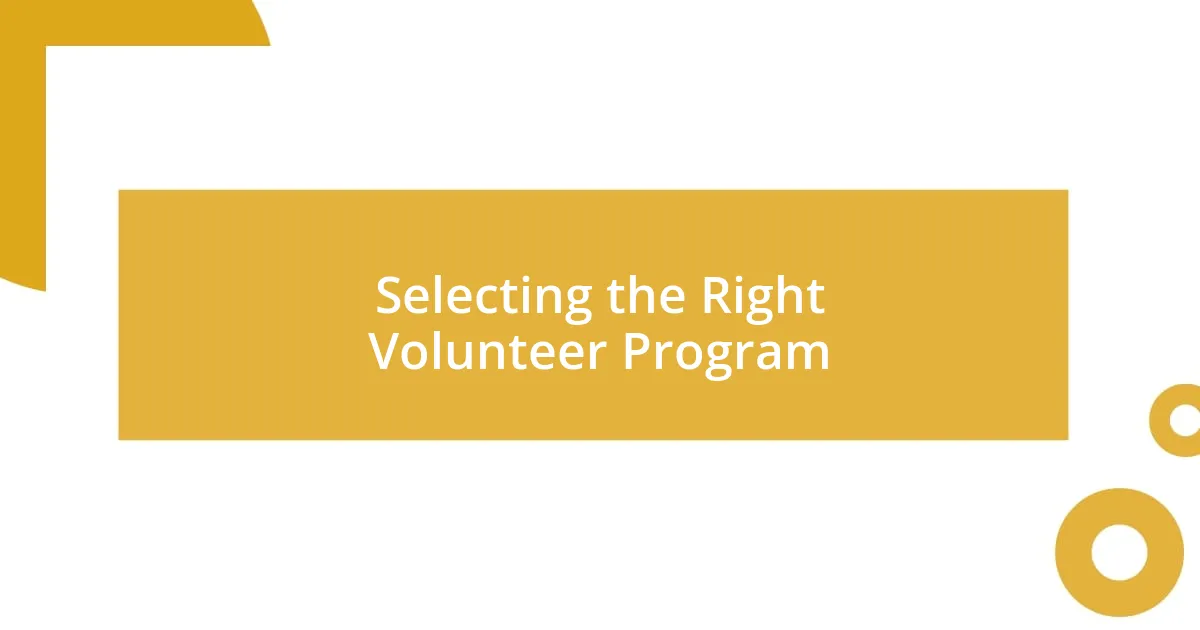
Selecting the Right Volunteer Program
Selecting the right volunteer program can feel like a daunting task, but it’s essential to match your interests with the organization’s mission. For example, during my time in Africa, I was drawn to programs focusing on wildlife conservation because of my love for animals. However, many people may find educational initiatives more fulfilling. What resonates with you? Reflecting on your passions will guide your choice.
The practical aspects shouldn’t be overlooked either. Consider program duration, financial commitments, and accommodation options. When volunteering in Southeast Asia, I appreciated a program that provided local housing, which enhanced my experience. It enabled me to develop close relationships with the community, making my contribution feel more significant. What logistical aspects matter most to you?
Finally, don’t forget to read reviews and testimonials from past volunteers. Researching the organization was a game-changer for me. One program I almost joined had mixed feedback regarding safety and support. After I switched to a highly-rated organization, my experience was overwhelmingly positive, and I felt valued. Always trust your instincts when selecting the right fit for your journey.
| Factors | Considerations |
|---|---|
| Interests | Match your passions with the organization’s mission |
| Logistics | Check duration, costs, and accommodation arrangements |
| Reviews | Read testimonials from past participants |
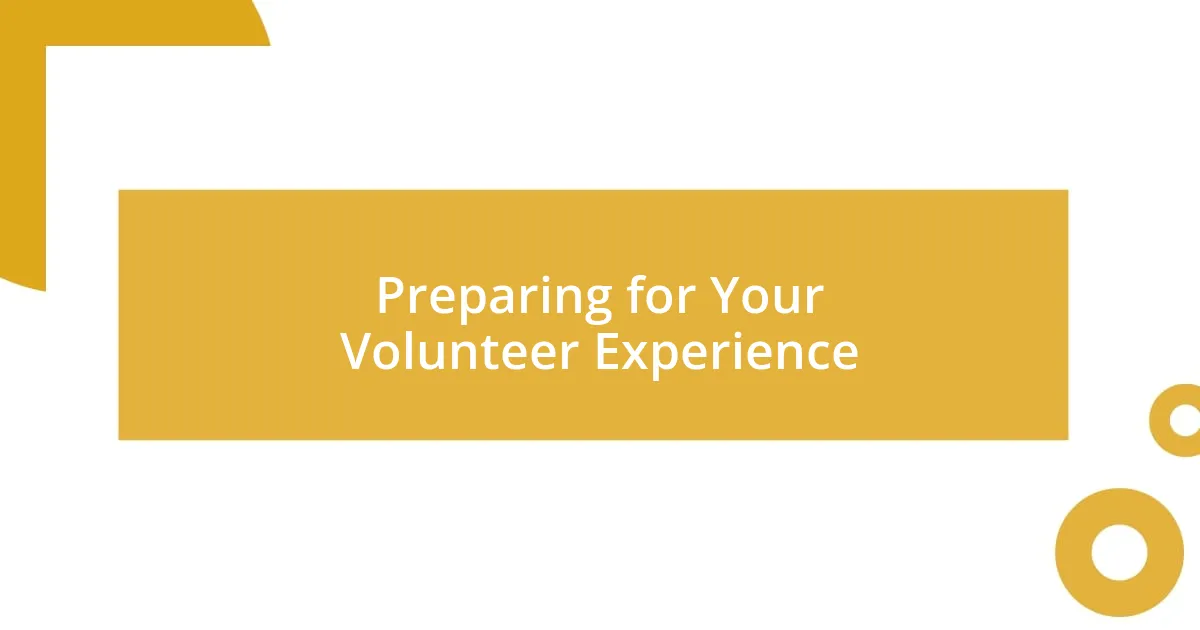
Preparing for Your Volunteer Experience
Preparing for your volunteer experience is an exciting step, but it requires careful thought. I vividly remember feeling a mix of excitement and anxiety as I packed for my trip to South America. Would I have everything I needed? To ease this uncertainty, I made a checklist, focusing on essentials like clothing suitable for the climate and any specific supplies required by my project. This preparation helped me enter my new environment with confidence.
Another important aspect to consider is understanding the local culture and language. When I volunteered in a remote community in Guatemala, I took the time to learn some basic Spanish phrases. It was incredible how a simple “hola” or “gracias” could break down barriers and foster connections. Have you thought about the language or cultural nuances that might enhance your interactions?
Lastly, being mentally prepared for the challenges ahead is vital. I recall dealing with homesickness during my first week in a foreign country. I had to remind myself why I was there—to contribute and learn. Embrace the emotional rollercoaster; it’s all part of the journey. What strategies will you adopt to stay grounded when faced with unexpected situations?
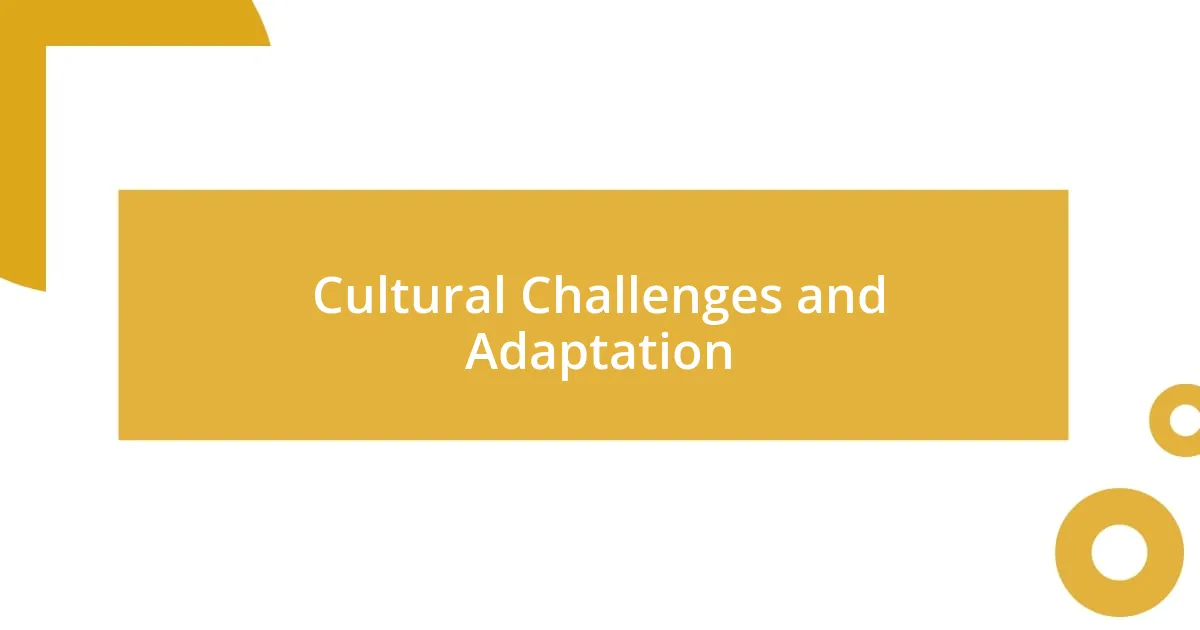
Cultural Challenges and Adaptation
Adapting to a new culture can be both thrilling and challenging. I remember stepping into a bustling market in India, overwhelmed by the colors, sounds, and scents. It struck me how different daily life was from my own. One of my biggest challenges was learning to navigate social norms, like respecting the concept of personal space, which is viewed differently in various cultures. Have you ever felt out of place in a new environment? It’s a common experience that pushes us to rethink our own cultural perspectives.
Food is another cultural hurdle that often requires adaptation. I was initially hesitant to try local dishes during my time in the Middle East, worried about unfamiliar spices and cooking styles. However, once I took that leap and indulged in the rich flavors, I discovered a new appreciation for the cuisine and the people who prepared it. It’s fascinating how food can serve as a bridge between cultures, sparking conversations and connections. What culinary adventures are you willing to embrace in your own journey?
Moreover, building relationships within a different cultural context often requires a shift in communication styles. I found that humor didn’t always translate well, especially in more traditional settings. There were times when my jokes fell flat, leaving me feeling embarrassed and disconnected. Through these experiences, I learned to pay attention to non-verbal cues, adjusting my approach to ensure my messages resonated. How do you plan to foster connections that honor local customs while sharing a piece of your own culture? Embracing these challenges leads to genuine connections and enriches our worldview.
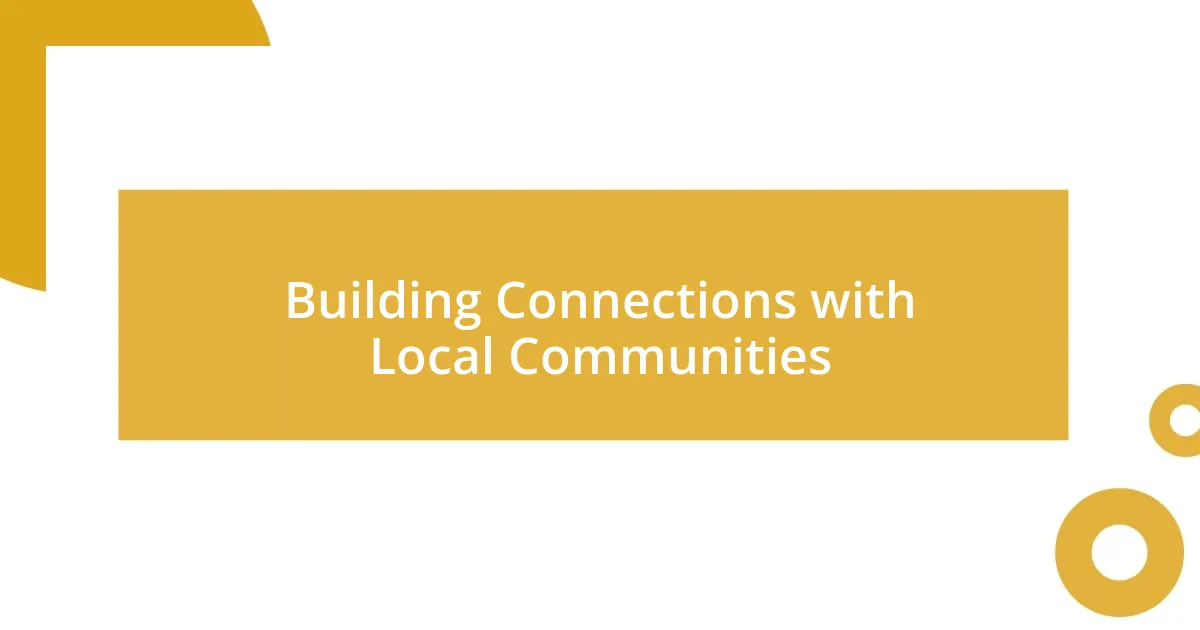
Building Connections with Local Communities
Building connections with local communities is an enriching aspect of volunteering abroad. I remember one evening in a small village in Peru, where the locals invited me to a fiesta. The warmth of their hospitality made me feel like I truly belonged, even if only for a night. It’s moments like these that highlight how genuine connection transcends language and cultural barriers. Have you ever felt that sense of belonging in an unfamiliar place?
Engaging with community members often leads to unexpected friendships. I played soccer with local kids in a park in Tanzania, and suddenly, it wasn’t just about the game but the laughter and shared joy of competition. This kind of informal interaction allowed me to see things from their perspective, deepening my understanding of their lives. What activities could you participate in that might open doors to new friendships during your volunteering journey?
Trust is a crucial element in fostering these connections. I distinctly recall a day spent helping a local family with agricultural work. Initially, they were hesitant to let me join—but with time and genuine interest, I earned their trust. Once I was accepted, I was privy to stories of their daily lives, dreams, and struggles. Building trust takes patience, but the rewards of mutual respect and understanding are immeasurable. How will you approach relationship-building in a way that honors the locals’ perspectives?
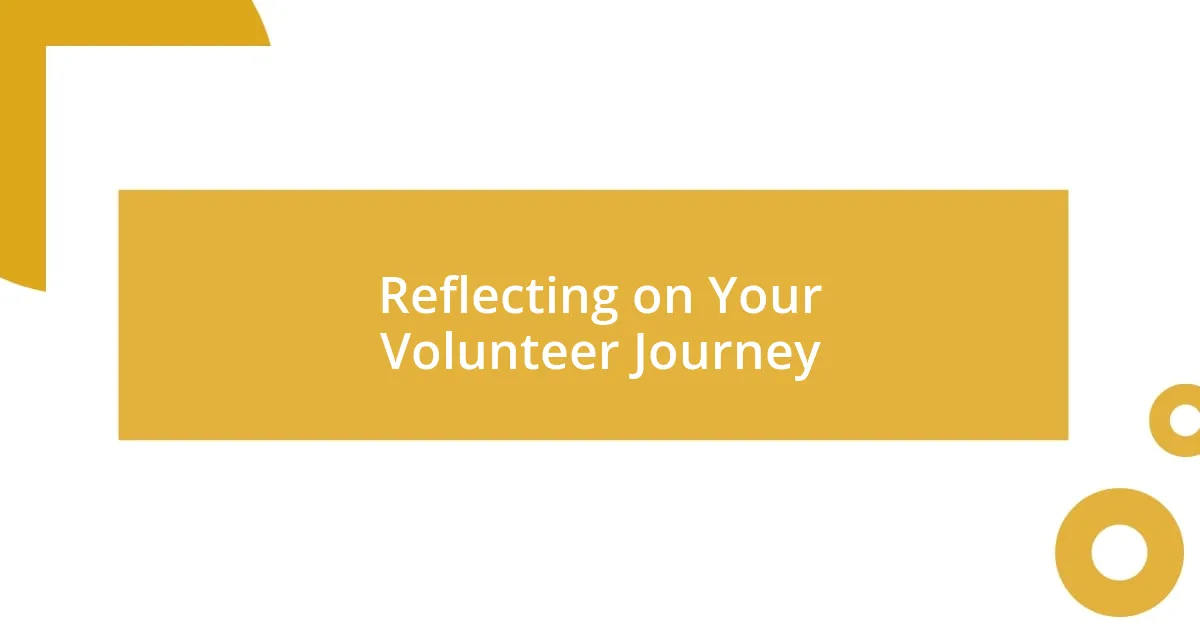
Reflecting on Your Volunteer Journey
Reflecting on your volunteer journey is essential for personal growth. I recall sitting quietly one afternoon in a coffee shop in Guatemala, pondering the impact my efforts had on the community. It struck me that volunteering isn’t just about giving—it’s also about receiving lessons that shape who we are. How often are we truly open to recognizing those lessons in our daily lives?
One pivotal moment for me was when I facilitated a workshop, only to realize halfway through that the participants had far more insights to share than I could offer. Watching their confidence blossom as they exchanged ideas filled me with a sense of humility and inspiration. This made me question my approach: am I genuinely listening, or am I too focused on imparting my knowledge? This introspection opened my eyes to the value of community wisdom and collaboration.
As I reflect on the entire experience, I find myself continually revisiting the relationships I built. There were times of laughter, shared struggles, and even moments of vulnerability that connected us deeply. I’ve learned that each interaction has left a lasting imprint on my heart. What parts of your journey resonate most strongly with you? It’s these reflections that remind us how interconnected our lives truly are.




